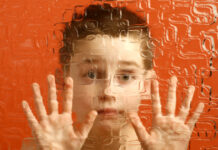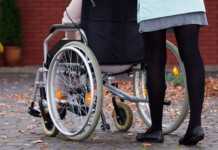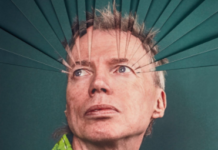Exposure to Antidepressants in the Womb Linked to Autistic Behavior in Mice
Researchers experimenting on mice found that exposure to fluoxetine (Prozac) in utero resulted in behaviors considered in animal studies to be analogous to autism in humans.
Study Finds No Correlation between Personality at 14 and 77
This result calls into question popular notions about the correlations between personality and later-life achievement and health outcomes.
Half of First-Episode Patients Respond to Antipsychotics
No placebo controlled trials provide evidence of antipsychotics in first-episode psychosis.
Trauma-Informed Treatment May Lead to Better Outcomes for Psychosis
Researchers at the New York State Psychiatric Institute wondered why a "surprisingly high percentage of study applicants" for studies in PTSD presented with psychotic...
New Research Documents Widening Mortality Gap for Bipolar and Schizophrenia
Analysis of longitudinal data from 2000-2014 demonstrate mortality gap is widening between persons with a diagnosis of bipolar or schizophrenia compared to the general population
Most Off-Label Prescribing of Antidepressants Lacks Strong Scientific Evidence
A new study, published in the British Medical Journal, investigates the prevalence of off-label prescribing for antidepressant medication in primary care settings.
My Life on Antidepressants
In this piece for Vogue, model and writer Sydney Lima shares her experiences with the adverse effects of Sertraline and Bupropion.
"For the next few months,...
Go to Sleep
A blog in Scientific American reviews sleep’s role in "Obesity, Schizophrenia, Diabetes... Everything". The article notes a tight link between depression and sleep apnea,...
Psychology Must Become a Sanctuary Discipline to Heal Racial Trauma
Researchers explore pathways of healing racial trauma in Latinx immigrant communities.
Girl in Facebook Live Hanging was Prescribed Antidepressant
From the Miami Herald: Naika Venant, a 14-year-old girl who died by suicide this past January, had been prescribed Zoloft, an antidepressant with a black box...
Children with Autism may be Over-diagnosed with ‘ADHD’
A commonly used ADHD diagnostic measure may find overlapping symptoms in autism and ADHD, resulting in over-diagnosis.
Is Depression Unhappiness?
We have good reason to despair, to feel anguish, and pain. We have a planet that we are poisoning. We have people populating the planet who like to harm one another. We have families who, in their own pain and trauma, pass on that pain and trauma to their children. We face tragedies of all kinds just by being alive. Being human is DIFFICULT. It’s also the most amazing adventure and it can be very very painful to wake up to just how amazing and outrageous this life we’ve been given is. It’s no small task for any of us.
Valproate Linked to Decreased Brain Volume in Children Diagnosed with Bipolar Disorder
Researchers find that valproate decreases brain volume in a region associated with emotion processing across all participants.
Environmental Neurotoxins and Autism
-A discussion of some of the links that have been found between neurotoxins polluting the environment and higher risks of developing autistic symptoms.
Nietzsche on Depression and the Rehabilitation of Hope
In this piece for Brain Pickings, Maria Popova discusses Friedrich Nietzsche's writings and perspectives on the struggle of depression and the possibility of hope.
"Nietzsche writes...
“CDC Warns that Americans May be Overmedicating Youngest Children with ADHD”
The Centers for Disease Control and Prevention (CDC) released new data indicating that as many as 75% of young children who are diagnosed with...
Almost No Nursing Homes Meet Federal Standards for Antipsychotic Use
The Office of the Inspector General finds that 99.5% of nursing facilities in the United States are non-compliant regarding federal regulations concerning antipsychotic use....
Stimulants, But Not Cannabis, Predict Readmission for Psychosis
Prior admissions with stimulant disorder, but not a prior cannabis disorder diagnosis, are a negative prognostic sign in first-episode psychosis according to new research...
SNRIs Added to the List of Drugs with Potential Withdrawal Symptoms
New research suggests that clinicians should exercise caution prescribing SNRIs as first-line treatment for mood and anxiety disorders.
The Never-Ending Misuse of Antipsychotics in Nursing Homes
From Health Affairs: Although the problem of antipsychotic misuse in nursing homes has been raised to policymakers numerous times over the past six decades, the...
Helping People to Constructively Engage with Voices
When voices are engaged with creativity and compassion, the result can be a positive change in the relationship with voices, leading to much greater peace of mind. But how can people learn how to facilitate this? A new video series by Charlie Heriot-Maitland, Rufus May and Elisabeth Svanholmer offers some practical ideas.
Smash the Blue Lights: Autism Speaks is a ‘Danger to Self and Others’
There are few around Mad in America territory who would argue against the dangers of the National Alliance for Mental Illness. But as a movement, we often fail to recognize the dangers of their much younger sibling named ‘Autism Speaks’.
The Mind-Expanding Ideas of Andy Clark
In this piece for The New Yorker, Larissa MacFarquhar profiles the philosopher and cognitive scientist Andy Clark, whose work argues that our minds are inseparable...
“Why ARE so Many People Being Labelled Bipolar?”
"For drugs designed for a relatively small number of very disturbed patients, antipsychotics are now among the most profitable drugs in the world, just...
How Can Professionals Learn to Reduce Fears of Psychotic Experiences Rather Than Emphasize Pathology?
The kinds of experiences we call psychotic are often incredibly scary: people feel they are being persecuted by strange forces, or that their brains have been invaded by demons or riddled with implants from the CIA . . . the list of possible fears is endless, and often horrifying. While standard mental health approaches counter many of these fears, they often create new fears of a different variety. Wouldn’t it be helpful if professionals were trained in an approach that could help people shift away from both dangerous psychotic ways of thinking and also away from the sometimes equally terrifying explanations which emphasize pathology?

























